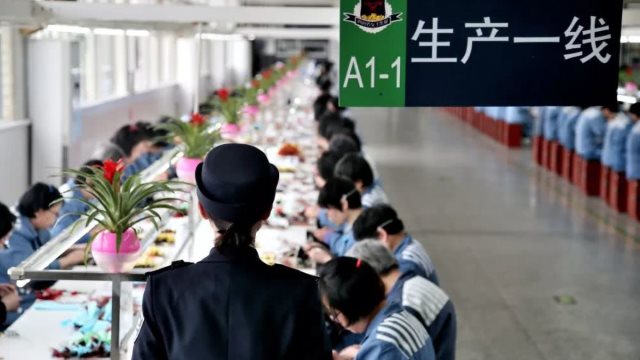
Even diagnosed with severe kidney disease, a member of The Church of Almighty God was sentenced to four years in prison for her faith. She shares her experience.
“I was making clothes in prison, from 7 a.m. to 6 p.m., sometimes to 11 p.m., 11- 16 hours a day,” Liu Hui told Bitter Winter recounting the time she spent in prison “As I was in ill health and could not complete tasks on time, I was often beaten and punished: forced to stand for about six hours until midnight, copy the prison’s regulations by hand ten times. After standing for so long, I felt pain in my waist and back.”
Liu Hui is a member of The Church of Almighty God (CAG) from the eastern province of Shandong. This is not her real name, we use a pseudonym to protect her. In June 2013, she was arrested while attending a religious gathering and was later sentenced to four years in prison for “using a xie jiao organization to undermine law enforcement.” During a physical examination before she was taken to serve her sentence, the woman was diagnosed with kidney disease, but she was not informed about her condition.
In prison, she was forced to watch videos slandering the CAG, memorize prison regulations, “The Standards for Being a Good Pupil and Child,” Di Zi Gui (弟子規) in Chinese, a manual based on the teachings of China’s most influential philosopher Confucius (551-479 BC), and other Chinese classic texts. Guards also made her sign the “four statements”—repentance, break-up, guarantee, and criticism—which ultimately means betraying and abandoning her faith. Because she refused, she was beaten almost daily for four months until she was sent to work in a prison factory.
“I learned about my medical condition only when a prison staff member mentioned it by accident,” Liu Hui said.
According to China’s laws, inmates with renal insufficiencies caused by various chronic kidney diseases, which cannot be treated in prison, such as chronic glomerulonephritis, chronic pyelonephritis, bilateral renal tuberculosis, renal arteriosclerosis, and alike, are eligible for parole.
“The prison doctor said that I qualified for medical parole, but the prison did not handle these procedures for me, and instead, forced me to work for more than ten hours every day like other prisoners. When I failed to complete my tasks, they punished me,” Liu Hui remembered.
The doctor also told her that she needed physical examinations every month and should not do heavy work. Regardless, guards instigated the prisoner in charge of supervising other working inmates to make sure that she could not be examined because of “too much work.” Once, she was deprived of medicine for nearly a month, and her condition deteriorated. Daily hard labor didn’t help. She was getting worse and worse, but was forced to work as usual. “My cellmates told me I was so skinny that a gust of wind could blow me away,” Liu Hui remembered.
She survived four years in prison, but her distress did not end there: she was frequently harassed after her release. Despite her serious illness, she had no choice but to flee home to avoid persecution. Life in exile has made her health to deteriorate even further.
The CAG is the single most persecuted religious group in China; it was included in the list of the xie jiao in 1995. According to the CAG’s annual report, in 2019, at least 19 CAG members were persecuted to death. Among them, Yu Xiangju from Ankang city in the northwestern province of Shaanxi was taken into custody, disregarding that she was suffering from hypertension, heart disease, and other illnesses. While in prison, she was refused medication, making her condition to deteriorate. She died on March 29.
A CAG believer from the southeastern province of Jiangxi was taken into custody despite his illness and held there for months. When he was finally released on bail, the 21-year-old died.
In 2017, a CAG member from Shandong Province was sentenced to three years in prison. Her family learned about her sentence only a year later. They then found out that the woman was diagnosed with cancer and applied for medical parole, but were refused.
Source: Bitter Winter












